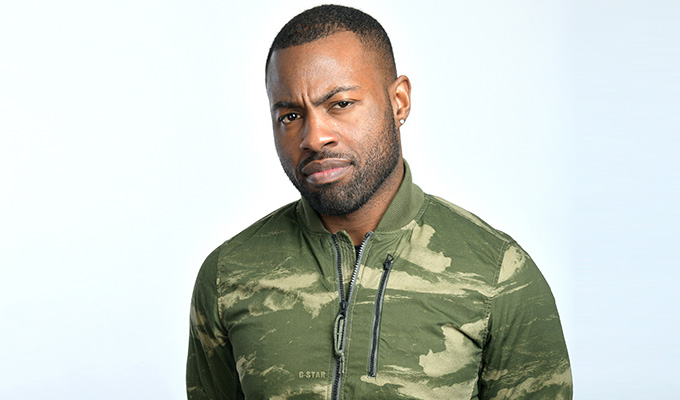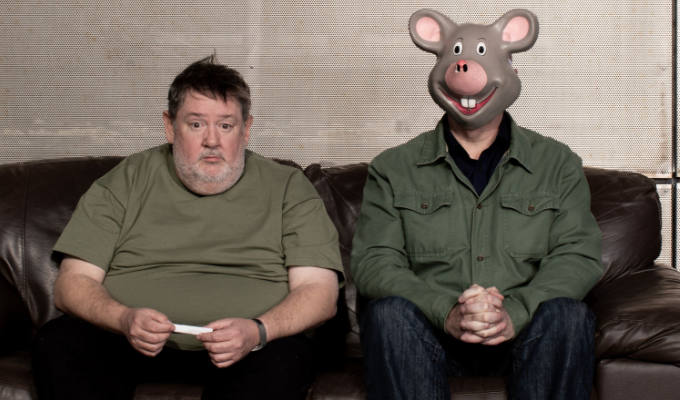
Darren Harriott: Visceral
Note: This review is from 2018
Edinburgh Fringe review by Paul Fleckney
I wasn’t wild about Darren Harriott’s debut last year, but it was clear he had something about him. His new show, Visceral, isn’t just funnier, it marks him out as a comic of gravity and honesty, taking on big issues and opening himself up to criticism.
Visceral is pretty slow to warm up. His opening routine on living with a crackhead isn’t up to much, and yet it hangs around for a while. It doesn’t really have the ring of truth to it, which fatally undermined it for me. Things pick up when he moves on to the subject of his upbringing in a poor part of Birmingham, which results in some lovely gags about using iron-on brands to make his clothes look cooler and more expensive.
The best and most interesting material is Harriott’s social commentary, be it on gangs, cultural appropriation, toxic masculinity or racial politics. What I liked most about Harriott’s style is that he doesn’t try to present himself in the best way possible, i.e. he admits that he has to consciously swot up about these things, he recognises their importance and is trying his best, he’s learning on the job. Isn’t that how most people feel? It’s certainly preferable (and more persuasive) than having a consciously woke routine up your sleeve.
On the subject of gangs, Harriott speaks openly about why kids get into them, why he got into one, how he ended up walking around with a knife in his pocket. I didn’t get the feeling he was trying to portray it in a particularly positive or negative light, just saying how it was for him. It mainly came down to the utter lack of prospects and role in society – ‘fear was free’, he says – and at heart each member was a vulnerable boy with a fragile ego.
He finds real humour in this, like his very funny story of when they went to get ‘Terror Clan Killers’ printed on their hoodies, and how they fought not over postcodes, but dialling codes they didn’t really understand. He also has a great gag about how ‘inclusive’ gangs are portrayed as on TV.
Harriott returns to the subject of masculinity later on when he rejected the gang, and more notably a story about Mike Tyson being utterly terrifying and upset at the same time during a press conference. He relates this to his own vulnerability, of not being able to swim and being unwilling to accept his girlfriend’s attempts to get him to learn. Harriott talks down his intelligence at times but he’s seriously good on the not insignificant subject of being a human being.
Other topics include racial representation in film, how men have reacted to #metoo and his introduction to transphobia at the Pride march. Each time he is curious and non-judgmental and usually finds a way to make it funny, though not always. And Harriott is remarkably generous, I think, to the man in Norwich who was startlingly racist to him after a show.
The chances are that if you see Harriott on Live at the Apollo et al., he won’t be doing most of his stuff. The more generic his topic, the more generic his material, and the more ‘difficult' and political the topic, the better he is. Last year I thought he was quite flippant about these kinds of things, but now he’s meeting them head-on with insight and honesty. He’s still not yet at his best, but this is vital, impressive stuff from Harriott.
Review date: 21 Aug 2018
Reviewed by: Paul Fleckney
Reviewed at:
Pleasance Courtyard









